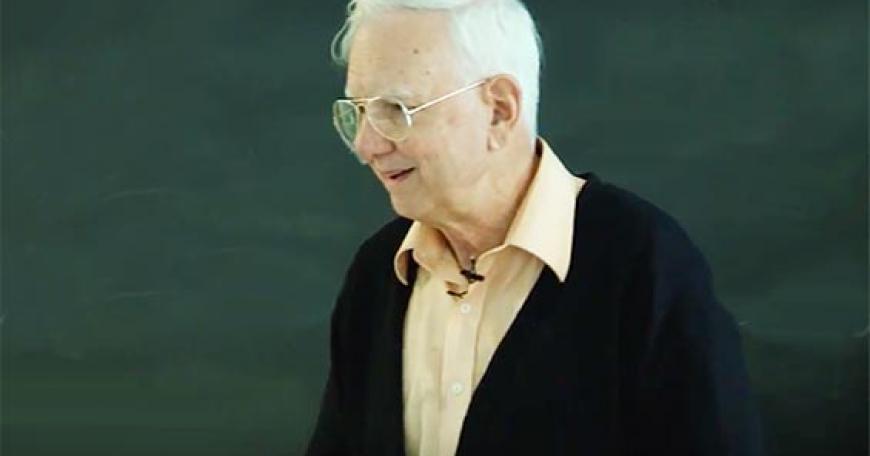
5 Things You Missed if You Missed David Pritchard’s xTalk
On May 9th, MIT physics professor David Pritchard, principal investigator of the REsearch in Learning Assessing and Tutoring Effectively (RELATE) group and a member of the Center for Ultracold Atoms in the Research Laboratory of Electronics and at Harvard, along with MIT postdoc Byron Drury, gave an xTalk arguing that traditional midterms should be replaced by weekly online quizzes. They presented evidence on the improved performance of students and the unique advantages of online quizzes, and put forth some potential challenges for discussion. Professor Pritchard is an experienced discipline-based education researcher, and developer of MasteringPhysics.com, MasteringAstronomy.com, etc., which are used by ~ 4 million students annually. Here’s a summary of the talk:
- From a pedagogical perspective, frequent quizzing improves students’ learning experience. In a traditional lecture and midterm based course, students almost never read the textbook or process the knowledge except before tests. Experiments show that a biweekly quiz-based course changes the nature of students’ learning process: they are encouraged to study every week, instead of just doing homework, and they spend more balanced time throughout the semester reading the textbook.
- The format of frequent quizzes significantly reduces homework copying and increases the final average. Frequent quizzes force the students to go over the material regularly and motivate them to complete homework by themselves. Research data shows that homework copying greatly impacts (negatively) final score, and that the format of frequent quizzes can shift up the final average one standard deviation and lead to large reduction in D and F grades. Students also give positive feedback after trying this format of learning.
- Online quizzes are fairer than paper quizzes; they eliminate grading error and require less faculty time spent on testing or grading. In the 8.011 Physics course taught in spring 2017, weekly quizzes – half online and half paper – were given in Friday’s class. Data from this class showed that online quizzes predicted final score better: in the optimized scenario, it had a 0.88 correlation with final.
- Online quizzing is usually made up of a blend of question types and response formats, providing separate measurements of conceptual and long problem solving ability of students. Different problem types (conceptual questions, calculation questions, open responses, etc.) give instructors different information about student knowledge. The unique feature of online quizzing that can allow multiple attempts also adds to the flexibility.
- By controlling week-to-week consistency of quizzes, the online format increases test reliability and can serve as a consistent year-to-year evaluation of student knowledge that indicates teaching quality and provides teachers with immediate feedback.
As a student who feels the pain of cramming course material the night before tests, I would definitely prefer a more effective learning format that helps, encourages, or even forces me to pace out my studying. Thus, I think the weekly/biweekly online quiz format that Pritchard proposes, combined with regular problem sets and exercises, will consolidate students’ understanding and mastery over course material. Nevertheless, the adoption of such format also faces challenges. For example, does this format improve learning for all courses, or just certain technical courses? How should quiz security be protected in multiple-section courses? And should quiz problems and solutions be released as they may jeopardize year-to-year consistency?

Ivory Zhu '21 is an MIT undergraduate majoring in Electrical Engineering and Computer Science

